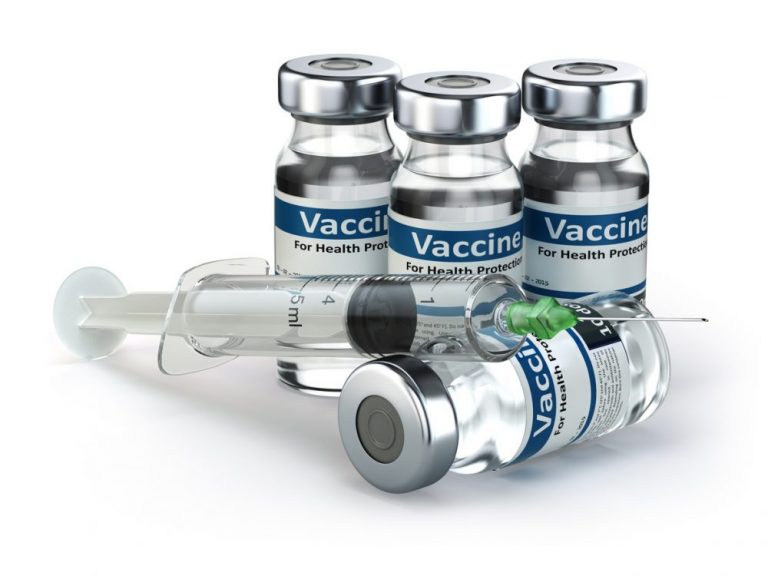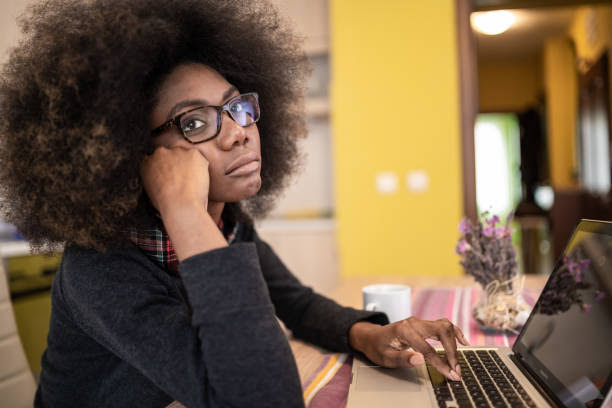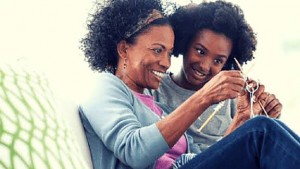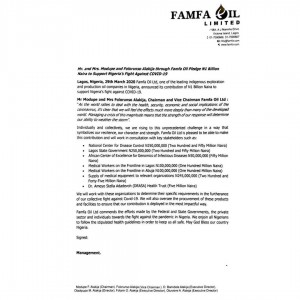– Says Government need to set up Mental health facilities and distress lines as soon as possible….
One of the downsides of the present change the world is experiencing because of the Coronavirus pandemic is the effect it would have on the mental health of so many people globally. Many have never been in situations where they have to stay in one place and not move around. While the social distancing and lockdown is a necessary safety measure to flatten the curve of COVID virus, we also need to create mental safe space for everyone.
Rinret Gofwan shares her thoughts on this. She is a behavioural change therapist, licensed trauma therapist, a certified emotional intelligence coach who specialises in Neuro-Linguistic Programming (NLP) and Advanced Training for Trauma Treatment of complex PTSD, overcoming compassion fatigue with professional resiliency, trauma and addiction.

Rinret is a University of Abuja Trained Communicator and Psychologist from the University of Jos, and a Sociologist From the University of Maiduguri with a Masters in International Relations and Strategic Studies. She is also the founding director at the Miriam Gofwan Women and Children Foundation. She shares her inspiring story while giving us an insight on how coronavirus will affect the mental health of people globally.
Growing up
Growing up as an only child, I was spoilt with everything. Looking back, I was an over-pampered child. My late mum wanted me to have everything life had to offer until she passed on. So at 16 years, I was alone, I didn’t know how to wash my clothes; it was at that moment life welcomed me. I had to start learning and I had to adapt and survive.
Inspiration behind Miriam Gofwan Women and Children Foundation and its impact
I always get this question and I’m always trying to figure out which life lesson to start with. Is it being accused of witchcraft, being abused and raped or almost losing my life in an accident? All these alongside my near-death experience inspired me to start the organisation. I disconnected from reality and built a personality. I couldn’t face my life as it was, suffered from pain and disassociating (disconnecting-from reality and couldn’t feel anything). I was fortunate to meet my mentors, Innocent and Talatu Usar, who God used to pull me through that phase of my life.
Being a Behavioural Change Therapist, Certified EI Coach, Trained Communicator and managing it all
Well when you are addicted to finding ways to heal, you will stumble into many training. In my trauma healing work, I need to be equipped with the right tools that would help in healing, so I committed myself to learn. You know people respond differently to trauma; what might be traumatic to someone might not be to you. How we react and respond to traumatic events are different. With this in mind, I went into learning and this has helped me understand my clients and knowing what tool to use in any case we have at the Foundation and the wellbeing hub.

What inspired me to start the pan-Nigeria healing room and the wellbeing hub for professionals
You see, the pain has no gender, no religion, no status no tribe, no class. Pain does not choose who feels it, we ALL feel pain; either from losing a loved one, loss of our childhood, abuse of any kind (verbal, emotional and physical) heartbreaks, disappointment, depression, anxiety, panic attacks, accusation or any traumatic experience. We are constantly trying to deal with these emotional issues and staking them side by side.
When emotions are over-staked and thoughts can’t be controlled, we need to devise methods to help. That’s how the Healing Room and the hub for professionals started; to enlighten, help and give professionals a place to go seek for help. The Healing Room became a place we go to sort out all these stacked up emotions, a no-judgment zone where you speak up and get healed. Coming to the healing room to some is like coming for medical checks monthly or weekly. To others, it is like coming to take vaccines to reset their minds; to some, it’s coming for medications in each session. To some, it is a place to support others who are in pain. To some, it is a place to hang out and stay emotionally healthy with proper guidelines.
Above all, it is a place of restoring wholeness for professionals.
Mental health effect of coronavirus pandemic and what can we do as a society to sensitise people
The first thing is to encourage people to stay calm, already I have many clients who are suffering from depression and anxiety because of the situation and we kicked off online group sessions to help them.
The truth is, being isolated is not healthy for people who are not used to such serenity, or people who have had a history of depression. What mental health practitioners can do right now is to start using technology and phone calls to help manage their clients, I have started on my end and I hope many more will go that route. The government would need to leverage on technology to also enable people to get first-hand mental health help online, by providing distress numbers to call. This will make a lot of difference.
Wellness nuggets for women who don’t know how to slam the breaks and detox
You see, mental and emotional wellbeing is an important part of our overall health. Women who are mentally and emotionally healthy are more in control of their thoughts, feelings, and behaviours. Women need to understand how to master their emotions and know how to be balanced in all seven dimensions of wellbeing, which are social, emotional, spiritual, environmental, occupational, Intellectual and physical. Stress is the feeling of being under too much pressure and feeling unable to cope with situations. Women who are constantly affected by stress in different ways end up getting sick and over time, ending up with mental health and physical issues.
Here are some things women can do to help reduce stress, constantly and instantly, over a period time:
Learning how to say NO, breathe; learn to relax your mind and body, try breathing exercises that can calm you down when under stress, exercise, get Spa dates to help release tension. Sleep – try to go to bed and wake up at a good time, laughing to relieve stress, talk- open up to someone you trust about your problems, and surround yourself with people who inspire you.
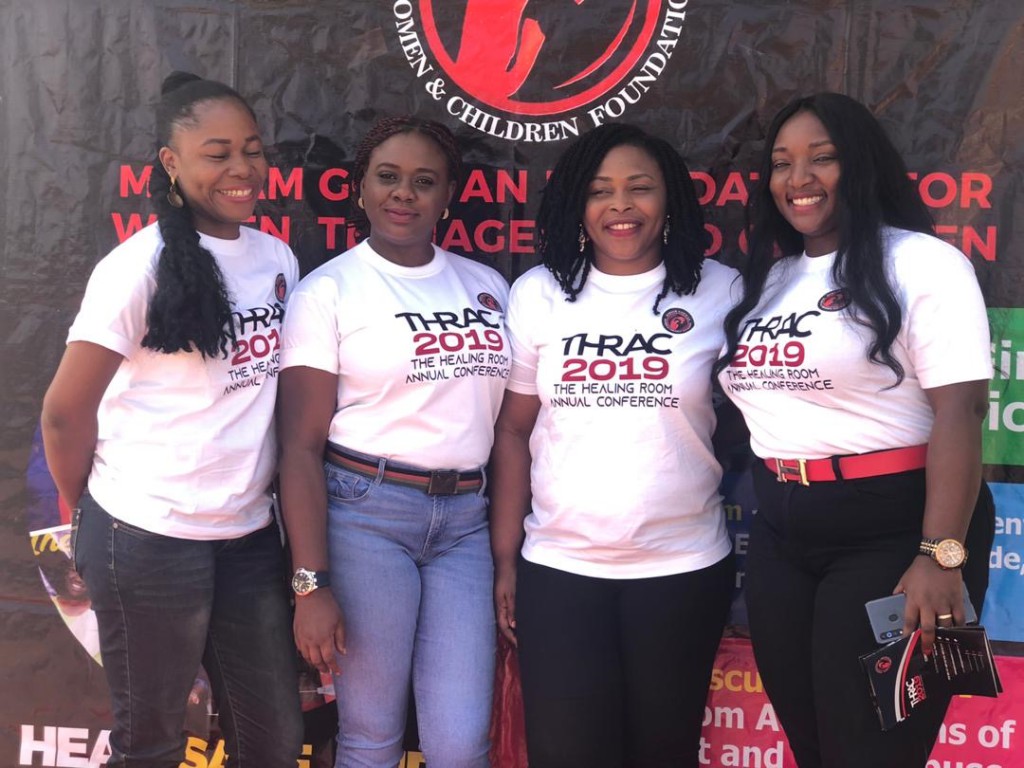
Challenges of Being a Mental Health Advocate
Mental health stigma, our justice systems, religious believes around mental health issues, funding for the foundation, consistency in following the therapy processes, the high rate of people in rural areas who are not aware of mental health issues, and how poverty has made them turn all issues of mental health to spiritual issues, the deliverance centers where they beat and abuse those with behavioural issues instead of therapy homes and the lack of mental health therapy centers.
Other projects and activities
We are currently working with some government agencies to launch and fix our sanitary pad boxes across the country in communities and public schools. We have opened our sanitary bank where we receive sanitary pads for distribution to schools and communities. We are opening more healing room therapy groups in five other states. We designed some trauma-informed course outlines to help schools and organizations. We recently just opened the wellbeing hub in Abuja, where we attend to clients who want private therapy and want trauma-informed trainings and care for their schools and organisations.
What makes you a Woman of Rubies
For me the stone ruby is also believed to protect self and others from negative entities that bring positive energy, promoting spiritual vitality and wellness. Now this describes the woman I have become- a strong woman who has gone through a lot and survived, coming out beautiful, standing strong and helping thousands of men and women. Now, that describes me!
As a counselor of repute and certified Trauma specialist, do you think the Nigerian Government has done enough in the Mental Health sector? If not, what would you suggest they do better?
I believe the government can do more by setting up more mental health facilities and rehabilitation centers; creating awareness around mental health issues and the stigma around it; reforming the justice process in rape cases and how evidence is processed; setting up therapy session and mental health training for our men and women in uniform; creating a safe working environment for women and young girls to speak up, not be shamed and judged; including mental health sessions in our school curriculums, and making sure we have sanitary pads and the boxes hanging everywhere in the country.
